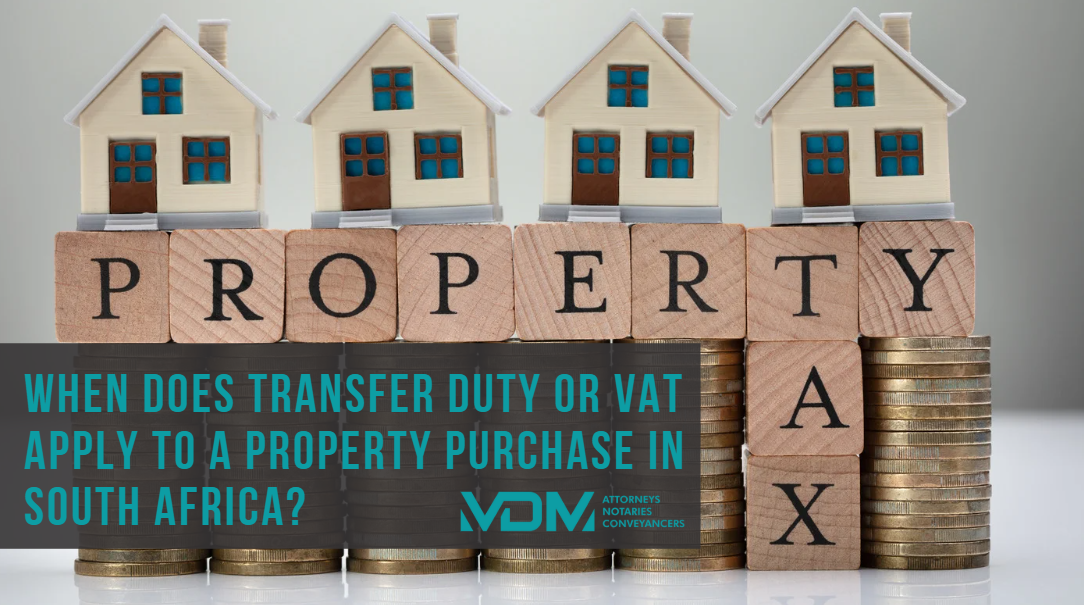
Buying a property in South Africa always comes with additional costs, and one of the most common questions is: Do I pay transfer duty, or is VAT included?
The answer depends on who the seller is and how the transaction is structured. Understanding the difference between transfer duty and VAT is essential to avoid unpleasant surprises.
What Is Transfer Duty?
- Transfer duty is a tax levied by SARS when ownership of a property is transferred from the seller to the buyer;
- It is calculated on a sliding scale based on the purchase price;
- As of April 2025, properties valued under R1,210,000 are exempt; and
- The buyer is responsible for paying transfer duty before the property can be registered in their name.
👉 Example: If you buy a residential property for R2 million from a private seller, you will pay transfer duty according to the SARS sliding scale.
What Is VAT?
- Value-Added Tax (VAT) is charged at 15% on the supply of goods and services;
- When a property is sold by a VAT-registered seller (usually a developer or property company), the transaction may be subject to VAT instead of transfer duty.
- VAT is generally included in the purchase price unless otherwise stated in the sale agreement.
👉 Example: If you buy a new apartment directly from a developer, the price usually includes VAT. In that case, no transfer duty is payable.
When Does Transfer Duty Apply?
Transfer duty applies when:
- You are buying property from a private individual who is not VAT-registered.
- You are buying from a company or trust that is not VAT-registered.
When Does VAT Apply?
VAT applies when:
- The seller is VAT-registered and the property forms part of their taxable enterprise.
- This typically happens when buying from developers or property investment companies.
- The agreement should state whether the purchase price is VAT inclusive or exclusive - always check this carefully.
Common Misunderstandings Clairifed
- Because the seller is a juristics entity (company or trust), you cannot assume it is a VAT transaction - you still need to check whether the juristic entity is VAT-registered.
- You never pay both VAT and transfer duty - it’s one or the other.
- If the seller is VAT-registered, VAT applies; if not, transfer duty applies.
- Buyers sometimes assume “VAT included” means no costs, but remember, attorneys’ transfer fees and bond costs still apply (check the sale agreement).
- If the agreement doesn’t clearly state whether VAT is included in the price, disputes can arise. Always clarify before signing.
Final Word
Whether transfer duty or VAT applies depends on the seller’s VAT status. In most private sales, transfer duty is payable by the buyer. In new developments or sales by VAT-registered entities, VAT replaces transfer duty.
At VDM Attorneys, our conveyancing team ensures that your sale agreement is crystal clear on whether transfer duty or VAT applies, helping you budget accurately and avoid costly surprises.
📞 Contact us today for expert advice on your property purchase and transparent guidance on all costs involved.